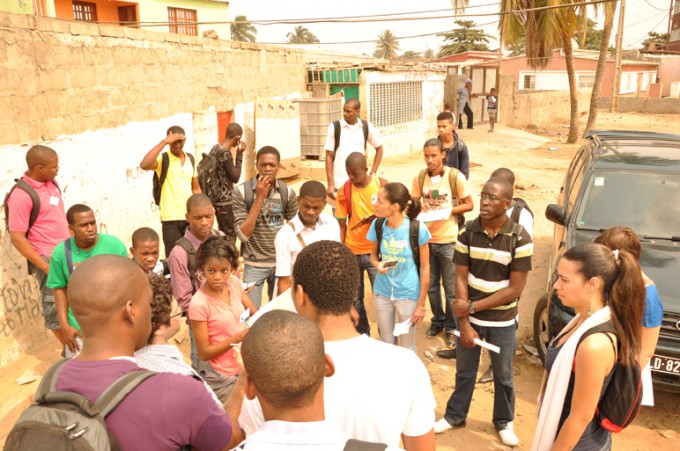
Fernando Tavora Prize
Fernando Tavora Prize | 7th edition awarded to Paulo Moreira
Jury members unanimously resolved to award the prize to Architect Paulo Moreira’s proposal “An Urban Exploration of Chicala: an alternative foray through the post-colonial topography of Luanda, Angola”.
“The proposal is encompassed within the broader scope of research currently ongoing at the Faculty of Architecture and Spatial Design (London Metropolitan University) and financed by FCT – Fundação para a Ciência e a Tecnologia. The Doctoral Program incorporating the proposal has as its adage is to illuminate the life of human beings through architecture, urban topography and their practices This research, in particular, is focused on deciphering Chicala, one of Luanda’s most central musseques, as a laboratory for broader reflections on the city’s post-colonial development. (…) It is proposed that this study be complemented through an “Urban Exploration of Chicala”, a set of practices which it is hoped might contribute to the neighbourhood’s consolidation. The area is an embodiment of the country’s history, on many levels, and should therefore be integrated within the country’s architectural, urban and territorial order. (…)
With the scholarship bestowed by the Távora Prize, the proposal is for a 30 day fieldtrip in Angola, between April and May 2012, in order to adapt and complement materials produced through the Social Architecture Workshop held in August 2011, which benefited from collaborations with both students and neighbourhood representatives, and to make these materials public and accessible through the implementation of interventions/installations developed in collaboration with local authorities and University participants. (…)
The “Urban Exploration of Chicala” is the result of collaboration between the Faculty of Architecture and Spatial Design and Angolan academic institutions: Departamento de Arquitectura da Universidade Agostinho Neto e Faculdade de Arquitectura da Universidade Lusíada de Angola. It will count on two non-governmental organizations for logistic support: Development Workshop and Hope & Space.”
(Excerpts from the fieldtrip proposal)
The jury “highlighted the number and quality of the proposals presented, stressing the potential contained therein in terms of architectural research proposals, whilst acknowledging that the study awarded in this 7th edition of the Tavora Prize stood out for its revival of the importance of architects’ social function; this within a post-colonial urban environment and with the city of Luanda as its geographic and contemplative destiny. The Jury considered that Paulo Moreira’s proposal enhances the pro-active role of the architect, by promoting the involvement – through the organization of a highly-participated workshop – of the indigenous population as well as of local institutions and architecture courses, in validating certain aspects of the fabric of Chicala, the musseque, as an integral part of the history of Luanda’s construction. The jury’s view is that the laboratorial character of the trip will garner attention to a global urban reality particularly common to so many other countries of similar cultural miscegenation, seeking to highlight it as a contemporary phenomenon”.
(Excerpt from jury’s minutes)

